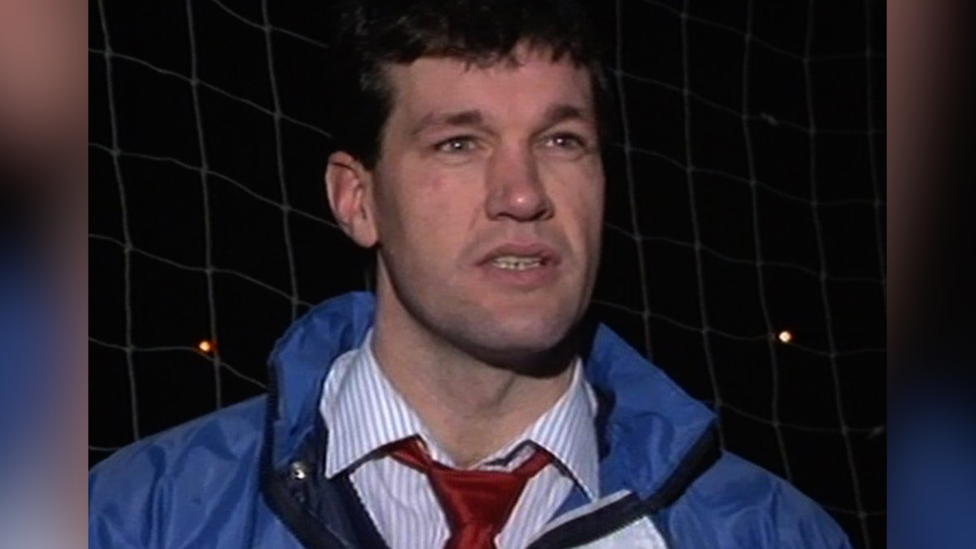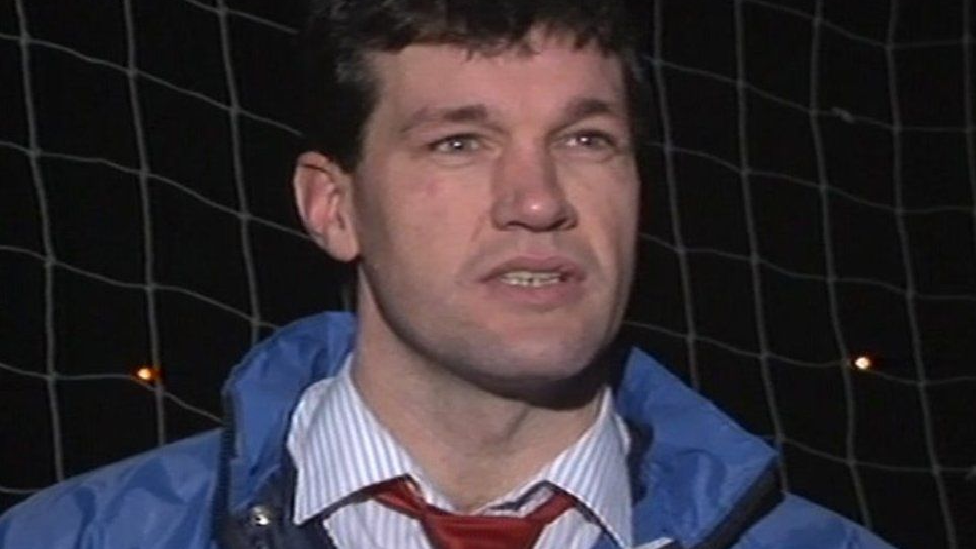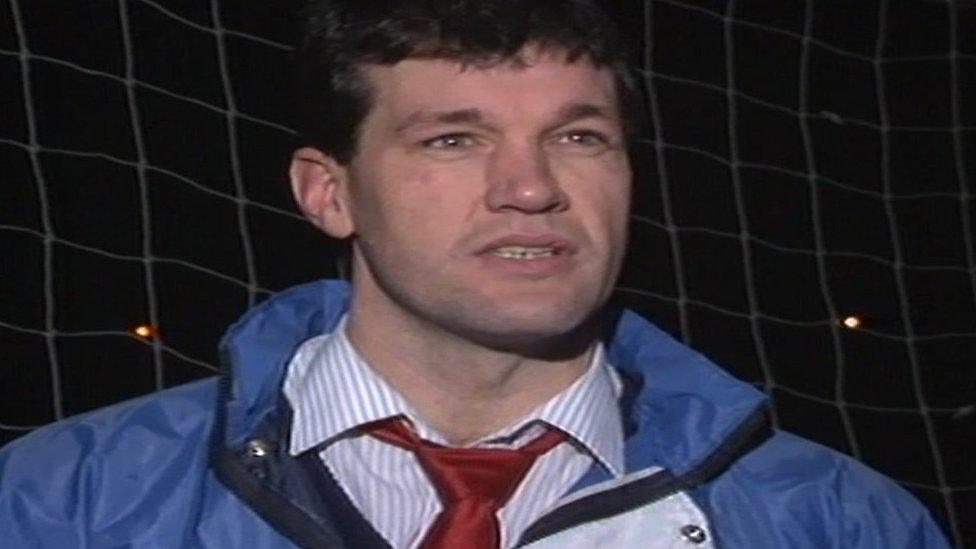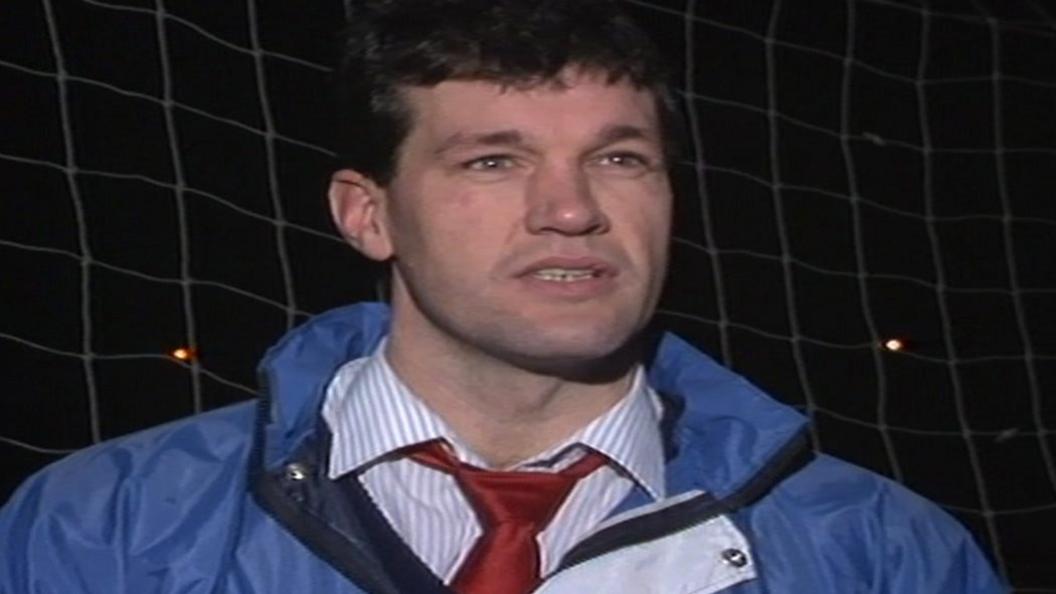Keith Pontin: Cardiff City comments after death 'insulting'
- Published
"Distressing" to hear Cardiff City suggest husband's death was not due to dementia caused by playing football
The family of a former Wales footballer say suggestions his death was not due to dementia caused by playing football were an "insult to his memory".
Keith Pontin died of dementia caused by repeated head trauma during his career, an inquest found.
His widow said it was "distressing and insulting" to hear his former club, Cardiff City, question the evidence of a diagnostic neuropathologist.
Cardiff City said the questions raised at the inquest were "legitimate".
Pontin played for Cardiff from 1976-1983, and died in August 2020, at the age of 64.
Diagnostic neuropathologist Dr William Stewart had examined Mr Pontin's brain and tissues following the post-mortem examination.
He told the inquest he had found extensive evidence of chronic traumatic encephalopathy (CTE), external, a progressive brain condition believed to be caused by repeated blows to the head and episodes of concussion, which eventually leads to dementia.
A legal representative for Cardiff City attended the inquest and questioned Dr Stewart over his findings, claiming there was not enough evidence to prove Mr Pontin's career in football had caused CTE.
However, coroner Mr Regan said he found Mr Stewart "extremely persuasive" and concluded: "Keith Pontin died from chronic traumatic encephalopathy caused by repetitive head injury suffered as a professional footballer."
'Distressing'

Janet said the suggestion that Keith had died of natural causes was an insult to his memory
Janet Pontin said: "The suggestion that Keith died of natural causes was distressing for us as a family, but it was insulting to his memory.
"That was the most difficult part of the inquest. I was angry about it, how dare they make that suggestion."
Cardiff City said in a statement: "The questions raised by the club's representative at the inquest were legitimate and intended only to assist the coroner to evaluate the medical evidence in this developing area of science.
"The club did not intend to dishonour Mr Pontin's memory in any way and regrets that Keith's wife and family are upset about this. Keith is remembered fondly by the club and its supporters and he is very much part of its history."

Keith Pontin played for Cardiff City and Wales
Mrs Pontin said her husband was kind, loving and caring. He died just before their 35th wedding anniversary.
"He was an unassuming, modest family man, he liked socialising, but his main joy was his family," added Mrs Pontin.
She described how the family watched him struggle through the last few years of his life as he battled dementia and CTE.

What is CTE?
A progressive brain condition that is thought to be caused by repeated blows to the head and repeated episodes of concussion
It is associated with contact sports, such as boxing and American football
Research is under way to find a reliable technique to diagnose the condition
Symptoms vary, but tend to be similar to Alzheimer's disease
Gradually develops several years after injury
The symptoms affect the functioning of the brain and eventually lead to dementia

"We made the decision to donate for further research so Keith didn't die in vain.
"His death will help further the research being done, and hopefully the research that will be made in future."
'Long overdue'

Mrs Pontin said research into neurodegenerative diseases in the sport is "long overdue"
Mrs Pontin hopes by speaking out it will contribute to the wider conversations around head injury in football.
She also said an initiative launched by the Professional Footballers' Association on Monday asking former footballers concerned about neurodegenerative diseases to come forward as "long overdue".
"Football authorities have tried to sweep this under the carpet," she said.
"We need a central record so they know the extent of the problem, of how many players it's affected in the past, current players and players who have had to retire, who are suffering as a result of it."
- Published3 May 2022

- Published29 January 2021

- Attribution
- Published2 August 2020

- Published2 May 2019

- Published30 May 2018
